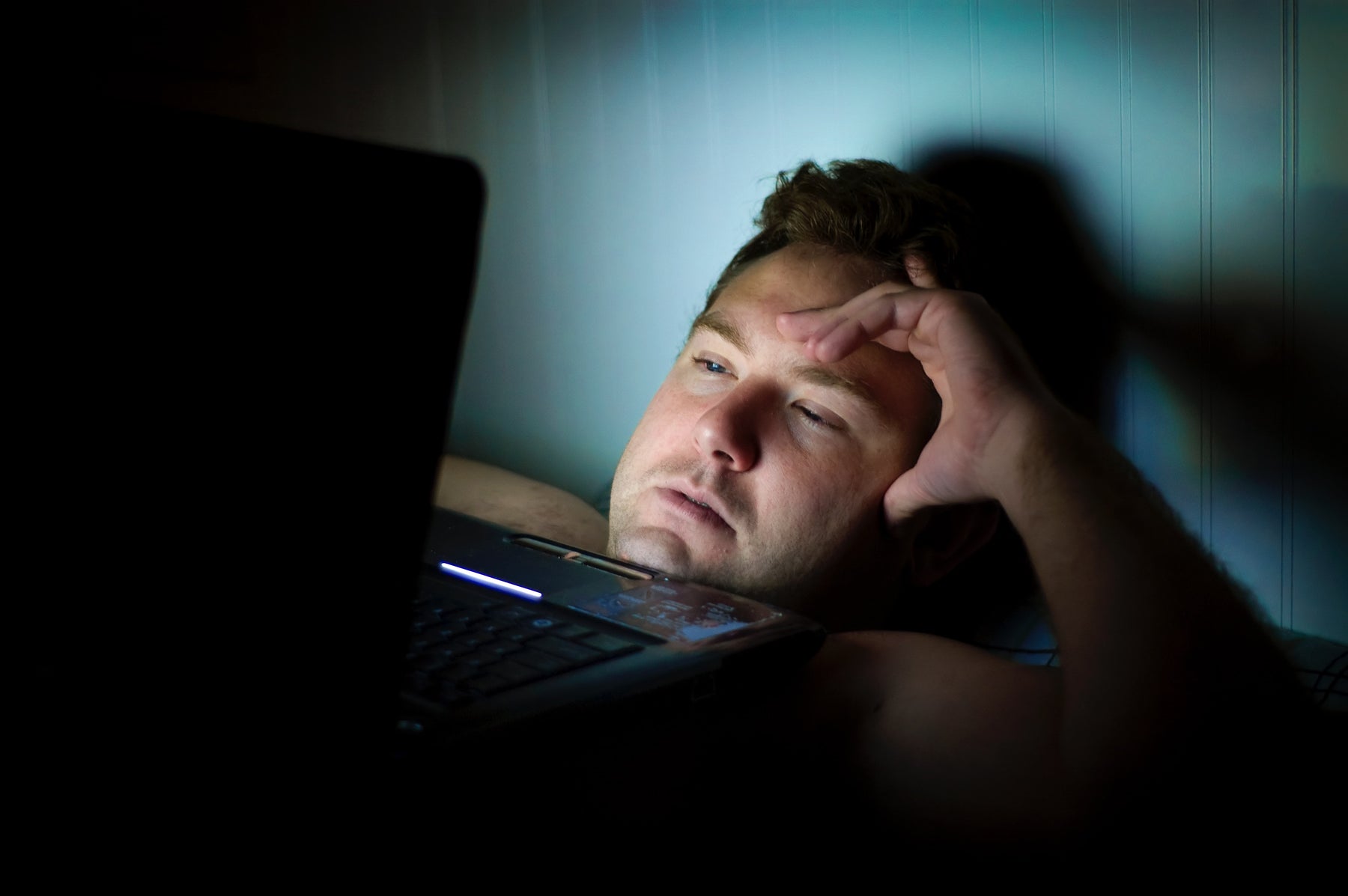
Getting Too Much Blue Light At Night? Get a Better Nights Sleep
With the invention of the light bulb, computers, cell phones, tablets, etc., complete darkness is even harder to come by.
"But isn't that the point?"
Yes, but it sure does come at a cost. Recent scientific studies have pinpointed that blue light is interfering with our sleep!
"That jerk I thought we were friends."
The short-wavelength light is beneficial during the daytime. Keeping us happy, alert, and energized to carry on our day. So, blue light is a great daytime friend, but not a cuddle buddy. Just like a pesky ex-boyfriend, blue light is everywhere too! It's in our phones, TV's, computers, tablets and even in your energy-efficient light bulbs. Messing with our natural clock and triggering sleepless nights.
Studies have shown that blue light exposure suppresses the production of melatonin (sleepy hormones) twice as long as other light wavelengths. This alters your natural sleep pattern (circadian rhythms) and can have a significant toll on your health, cardiovascular, metabolic, and immune systems, altering moods and slowing down cognitive function.
"So, what does this mean?"
The more you browse on your electronic devices at night, the more disruptions occur in your sleep cycle and reduce your quality of sleep. Making you tired, moody, and less productive the next day. This eventually could lead to health problems, depression, and weight gain (the bad kind!). Blue light is meant to keep you up and alert, which is interrupting your beauty sleep.

Blue light isn't the enemy
In the morning and afternoon, blue light is your best friend and quite supportive too. Just 30 minutes of blue light exposure in the morning is like a cup of coffee and can help with:
- reducing daytime sleepiness
- increasing reaction time
- increasing alertness
- strengthening attention span
"What can I do to fall asleep easier?"
Just be more mindful of blue light exposures at night.
- Avoid looking at bright screens 2-3 hours before bed
- Consider wearing anti-blue light filter glasses or installing an app that filters the blue/green wavelength at night if you work late
- Use dim red lights for night lights
- Get plenty of day light exposure to boost attention, improve your mood, cognitive function, and regulating the circadian rhythms for a better night sleep. 10 to 15 minutes in the sunlight should do the trick.
- Try taking natural melatonin supplements before bed.
Check out our hand picked selection of anit-blue light products here!
To learn more on how blue light effects your sleep here.


Leave a comment